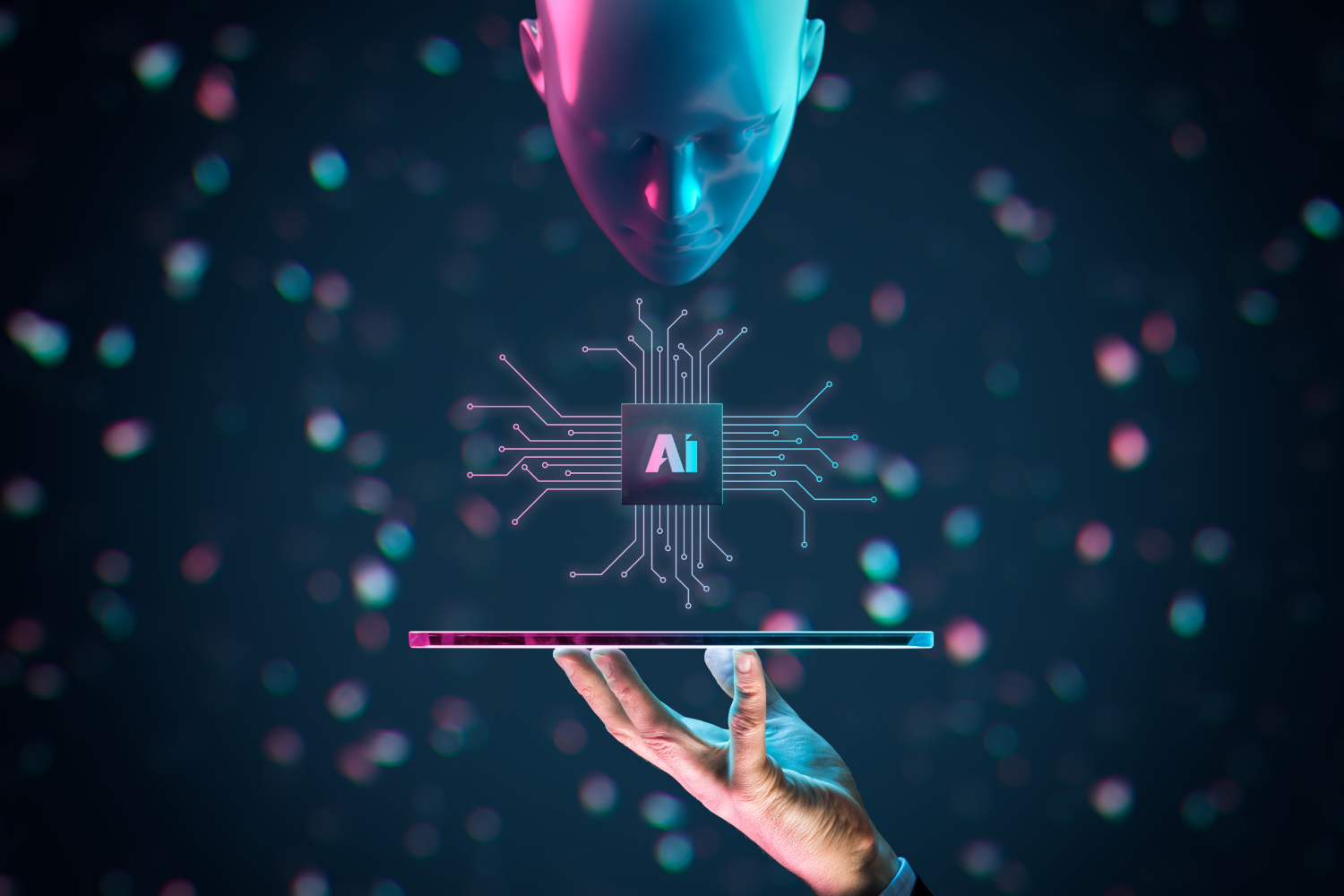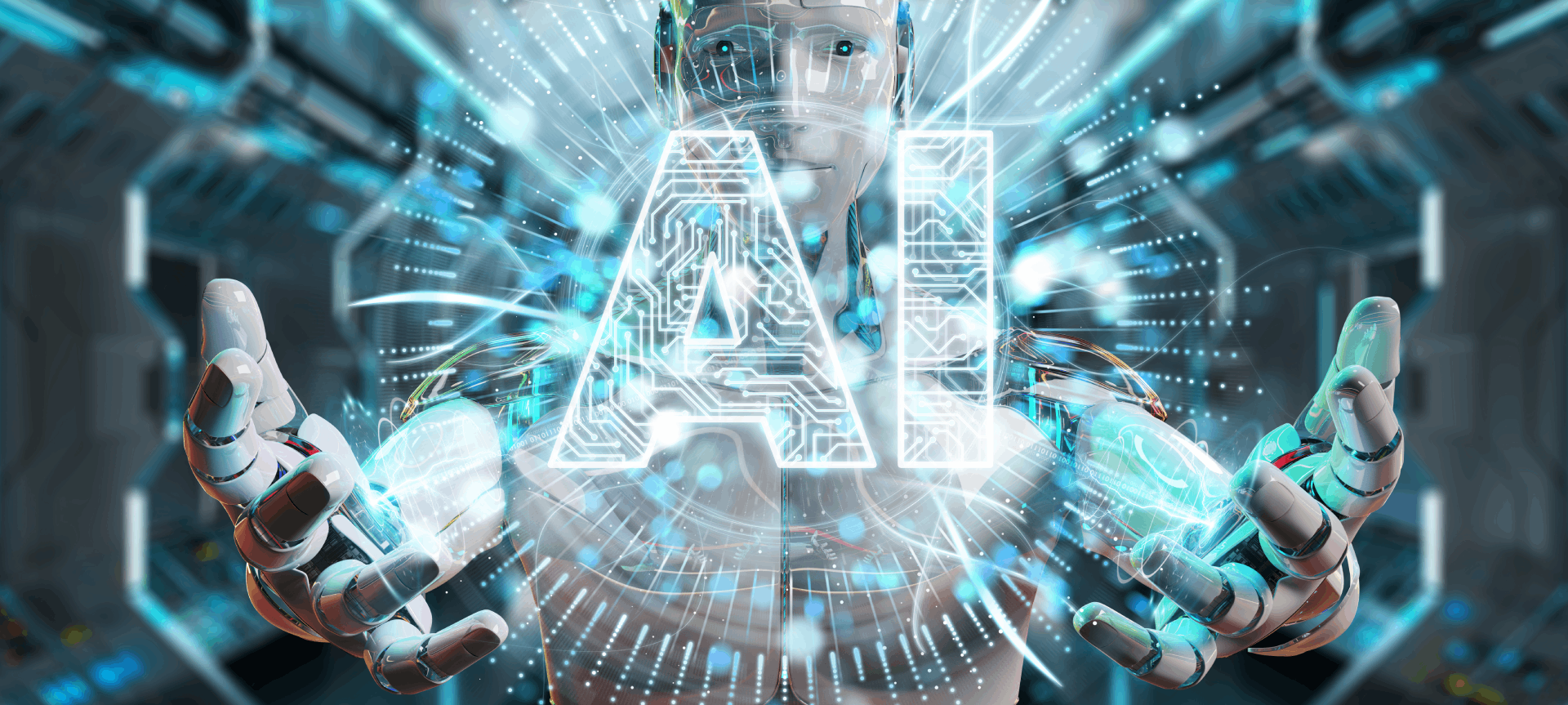
The role of artificial intelligence in STEM: Opportunities and challenges
STEM education, which includes science, technology, engineering and mathematics, is important for getting students like you ready for today's constantly changing world. Technology like artificial intelligence (AI) keeps advancing and that means we can use the potential of AI in STEM education. AI can change the way students learn and interact with these subjects, which brings both new opportunities and challenges.
When AI and STEM education come together, it can make learning a lot better. AI can be used in different parts of education, including curriculum and providing real-time feedback. With AI tools for learning, students can get lessons that are suitable for them and how they like to learn. AI can also help teachers by providing better feedback and customising the lessons to fit the requirements of each student. Moreover, AI can revolutionise assessments by making them more accurate by measuring students’ knowledge and skills.
In this blog, we'll talk about the role of artificial intelligence in STEM education. We'll look at the opportunities it presents and the challenges it brings. If we understand the potential of AI and address the issues, we can utilise it to make learning STEM subjects more personalised, engaging and effective for students.
Role of artificial intelligence in STEM education
Artificial intelligence is being used in many ways to improve how STEM subjects are taught. This section explores the role of artificial intelligence in different aspects of STEM education, like the learning tools students use, the curriculum and student assessments.
AI-based learning tools
- AI-based learning tools make learning better by providing personalised lessons to students.
- These tools use machine learning algorithms to analyse students’ activities and tailor lessons as per their needs.
- For example, intelligent tutoring systems can provide you with real-time feedback.
- Also, VR and AR powered by AI can make learning more fun by allowing students to explore or engage in complex scientific phenomena they couldn't do otherwise.
Role of artificial intelligence in curriculum
- AI can help teachers significantly by providing them with helpful resources and insights.
- Natural language processing (NLP) can analyse huge amounts of educational content, textbooks and research papers to help in curriculum development.
- AI can also create tailored lessons that fit each student's abilities and interests.
- Moreover, AI chatbots and virtual assistants can help you by answering your questions and guiding you through the learning process.
Role of artificial intelligence in student assessments
- AI has the potential to transform students’ assessments.
- Automated grading systems, using AI, can grade your work, like essays or coding assignments, using predefined rules.
- This saves time for teachers and makes marking fairer.
- AI can analyse vast amounts of data to find patterns in students’ performance.
- This helps give personalised feedback to students and helps them get better.
- Also, AI can facilitate adaptive tests that adjust based on how well the student does.
- This makes tests more suited to each student.
- By using AI in STEM education, teachers can make learning more engaging and personalised.
- AI helps students like you get personalised content, get feedback fast and have fun learning.
- It helps students get tailored content, feedback and experiences, so they understand STEM better.
AI opportunities in STEM education

AI in STEM education offers many opportunities to enhance the learning experience and help you succeed. In this section, we will explore the different ways AI can help in STEM education, highlighting the opportunities it presents.
AI opportunity #1: Improved learning experiences
One big opportunity AI presents in STEM education is making learning better. AI-powered learning tools can make fun and interactive ways for you to learn. For instance, virtual reality lets students try out scientific activities like they're there, making complex concepts easier to understand. AI can also generate personalised content and learning pathways for learning that fit each student, which helps them get more involved and understand STEM better.
AI opportunity #2: Tailored learning pathways
AI makes it possible to create personalised learning pathways, based on how you learn best. By looking at how you perform in academic institutions, AI can analyse where you might need extra help. This helps teachers create tailored learning experiences, so students can get better where they need to. With these personalised learning pathways, students can learn at their own pace and feel like they're really in charge of their learning.
AI opportunity #3: Enhanced assessment and feedback
AI-based assessment tools can give more accurate and efficient evaluations. AI-powered automated grading systems can grade student work automatically, so teachers have more time. These programmes can also look at how well students do and find ways to help them improve. By offering real-time feedback and suggesting ways to improve, AI helps students like you keep learning and getting better at STEM.
AI opportunity #4: Collaboration and problem-solving
AI can help students work together and solve problems. Intelligent tutoring systems can make group discussions and activities easier. Also, these systems can connect students with similar interests or skills, so they can work as a team. Additionally, AI can give students real-world problems to solve, getting them ready for STEM jobs.
AI opportunity #5: Availability of resources and expertise
AI can provide access to resources and expertise, especially in underserved communities. AI-powered websites give students access to high-quality educational materials, so they can learn about STEM even with limited resources. Moreover, AI can connect students with experts who can help them learn, no matter where they are. This means that no matter where you live or how many resources you have, you can still get the same opportunities to get a STEM education.
The opportunities that AI presents to STEM education are transformative. It can enhance learning experiences, provide you with personalised pathways, make assessments fairer, help you collaborate and provide you with resources.
AI challenges and concerns in STEM education
Integrating AI in STEM education presents numerous opportunities and challenges. This section will highlight the challenges and concerns that come with using AI in STEM education, showing why we need to be careful and think a lot before using it.
AI challenge #1: Data privacy and security
A big concern about using AI in STEM education is keeping student information safe. AI gathers a lot of data about students, like personal details and learning data. It's important to make sure this data is kept safe and used in the right way. Educational institutions need to have strong rules and protocols to keep student information private and stop it from being misused. There should be clear guidelines and policies governing collecting, storing and sharing student data, to ensure compliance with data protection regulations.
AI challenge #2: Fairness and availability
When bringing AI into STEM education, it's important to think about fairness and make sure everyone can use it. While AI can enhance the learning experience, it is important that all students, no matter where they're from or what they possess, can use AI tools and the opportunities it presents. The digital divide (the digital haves and have-nots) can worsen existing inequalities. Constant effort is required to bridge this divide and provide all students access to AI-powered resources, so no student is left behind.
AI challenge #3: Teacher training requirement
Utilising AI in STEM education demands that educators learn the essential skills and knowledge to effectively use AI tools and platforms. However, numerous teachers may lack the expertise or training needed to effectively use AI in their teaching methods. It is essential to introduce professional development programmes and training initiatives to help them learn about AI and new strategies to teach students. By providing teachers with the necessary skills, they can use AI in their teaching effectively and help students learn more in STEM.
AI challenge #4: Ethical concerns
Using AI in STEM education brings up ethical concerns that need attention. For example, the algorithms in AI systems might accidentally keep biases going or promote stereotypes, which could lead to unfair outcomes for some students. It's important to design AI systems with ethical considerations, ensuring transparency, accountability and fairness. Teachers and policymakers must discuss the ethical aspects of using AI in STEM education. They should make guidelines and frameworks to promote the ethical practices of AI.
AI challenge #5: Excessive dependence on AI
Even though AI can provide great support, there's a risk of relying on it too much in STEM education. It is essential to highlight the importance of the human-centred approach to education. AI should be seen as a tool that helps teachers, not one that replaces them. Educators are important for helping students think, be creative and learn social skills. So, it's important to use AI to facilitate learning, while still valuing teachers’ guidance and expertise.
To deal with the challenges and worries about AI in STEM education, everyone must work together: educational institutions, stakeholders and policymakers. By dealing with data privacy, teacher training, ethical concerns, equity and creating a balance between AI and human interaction, we can ensure that AI is used effectively in STEM education for the students' benefit.
AI is revolutionising STEM education in numerous ways. It's making learning different for students, giving opportunities for personalised learning and getting them more involved. It can enhance the teaching and learning experience in STEM classrooms. But challenges and concerns also need to be dealt with. As the world goes on, it is important to consider the opportunities and challenges hand in hand to create a future where AI is used responsibly and ethically in classrooms.
Study about the role of artificial intelligence with GBS

GBS is one of the well-known higher education institutions in the UK, known for its specialist courses in fields such as finance, business, healthcare and more. With a wide presence in major UK cities, the institution is dedicated to its mission of “changing lives through education”.
GBS offers an HND in Digital Technologies for England (Cyber Security) for students who want to understand the role of artificial intelligence.
HND in Digital Technologies for England (Cyber Security)
The HND in Digital Technologies for England (Cyber Security) is for students who are interested in practical learning. This course offers in-depth study in digital computing for those aiming for careers in the field.
Upon completion of this course, you can further your studies at the degree level or pursue careers such as:
- Business Analyst
- Digital Technologist
- IT Support Technician
- Data Analyst
- Software Developer
- Network Technician
- Software Tester
- Risk Analyst
- Data Analytics Consultant
- Database Administrator
- Web Developer
- IoT Developer
Frequently asked questions about the role of artificial intelligence
The role of artificial intelligence in STEM is many. It serves to enhance various aspects of STEM fields by:
- Facilitating data analysis: AI algorithms can process large sets of data quickly and efficiently, aiding researchers in identifying patterns, trends and insights in scientific research.
- Improving problem-solving capabilities: AI systems can solve complex problems in STEM fields, offering innovative solutions and assisting engineers and scientists in designing new technologies.
- Enhancing learning experiences: AI-powered educational tools provide interactive and personalised learning experiences for students, helping them learn difficult concepts and fostering interest and engagement in STEM subjects.
- Enabling automation: AI technologies automate repetitive tasks in STEM fields, freeing up time for professionals to focus on more creative and high-level tasks.
- Driving innovation: AI fosters innovation by enabling the development of advanced technologies and solutions in STEM fields, such as autonomous vehicles, healthcare diagnostics and renewable energy systems.
There are numerous AI challenges in STEM. These challenges encompass:
- Data privacy and security concerns: Safeguarding sensitive data is important, especially in educational settings where student information is involved.
- Ensuring fairness and availability: It's crucial to guarantee fair access to AI tools and resources for all students, regardless of their backgrounds or circumstances.
- Meeting teacher training requirements: Educators need adequate training to effectively integrate AI into their teaching practices, ensuring its beneficial use in the classroom.
- Addressing ethical concerns: Ethical considerations surrounding AI usage, such as potential biases or reinforcement of stereotypes, must be carefully dealt with to maintain fairness and transparency.
- Guarding against excessive dependence on AI: While AI offers valuable support, there's a risk of overreliance, which could overshadow the essential role of human interaction and critical thinking in STEM education.
By addressing these AI challenges proactively, educators and policymakers can channel the potential of the technology to enhance STEM education while ensuring responsible and ethical implementation for the benefit of all students.
There are numerous AI opportunities in STEM education, such as:
- Improved learning experiences
- Tailored learning pathways
- Enhanced assessment and feedback
- Collaboration and problem-solving
- Availability of resources and expertise
GBS provides HND in Digital Technologies for England (Cyber Security) designed for students who want to pursue a career in cybersecurity and digital technologies. Contact the student support team to know the enrolment process.
Enrolling in this course will equip you with the necessary foundation to thrive in a future career in digital technology. Over two years, you will engage with a blend of core and supplementary units, providing you with a comprehensive understanding of the industry. In the first year, you will establish fundamental knowledge in digital technology and cyber security. The second year delves deeper into contemporary industry topics such as:
- Emerging Technologies
- Business Intelligence
- Internet of Things
- Applied Cyber Security
- Cloud Computing Systems
Explore our courses
Choose from a wide range of vocational, foundation, undergraduate and postgraduate courses in Finance, Business Management, Healthcare, Tourism and more…